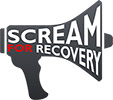According to the National Institute on Drug Abuse, addiction is, indeed, a mental health problem as well as a physical health issue. All types of addictions—drug addiction, alcohol addiction, gambling addiction—are governed by an underlying compulsion that is psychological in nature. While the physical addiction to drugs or alcohol is powerful and associated with withdrawal symptoms of a physical nature, the mental aspects of addiction can be just as strong and require treatment. Abusing drugs or alcohol also changes the chemistry of the brain and can lead to a pronounced mental illness that ranges from depression to psychosis.
When an addiction sufferer enters a residential mental health facility or an addiction treatment center, medical staff will evaluate the nature of the patient’s addiction as well as their mental and general physical health. In some cases, co-existing disorders may be detected and a dual diagnosis will be made. A dual diagnosis occurs when the patient exhibits an addiction as well as a mental illness. Without an evaluation, staff cannot develop an effective treatment plan to treat all aspects of the person’s addiction and mental health.

Understanding the Connection between Addiction and Mental Health
For many people, addiction, and mental health are integrally connected. It is not uncommon for many people who have a mental disorder to self-medicate by taking alcohol or drugs to “feel better.” Drinking or using drugs may provide temporary relief from a mental disorder like anxiety or depression; however, that relief is short-lived. By continuing to chronically drink or use drugs to temper the symptoms of a mental disorder, addiction can occur.
Alternatively, sometimes a mental health evaluation reveals that an addiction sufferer has actually caused a mental disorder by their chronic drug or alcohol use. These addictive substances can temporarily and permanently alter the brain, resulting in mood disturbances and full-blown mental illnesses.
It’s also important to note that alcohol and many types of drugs cause psychological side effects. Withdrawal symptoms can also trigger emotional side effects. For instance, some people experiencing alcohol withdrawal may have suicidal thoughts and serious depression. A mental health evaluation can uncover the precise nature of the mental health issue.

Treatment for Mental Health and Addiction
A residential mental health facility can provide treatment for addiction and mental health problems. The goal of treatment is to help the patient overcome their addiction and to effectively manage their mental health illness. Once someone checks into a mental health inpatient treatment center, they can expect to be evaluated so that caregivers can recommend an optimum treatment plan.
Treatment usually involves medical detox, but pharmaceutical treatments are often needed to manage the mental illness and to reduce the severity of withdrawal symptoms. It’s important for therapists to treat the addiction and mental disorder together as simultaneous treatment generally leads to the best results for patients.
If you or someone you care about is suffering from a substance addiction and you expect that their illness is complicated by a mental health disorder, it’s imperative to obtain treatment at a qualified dual diagnosis treatment center or addiction treatment center. Addiction and mental illness can both be progressive conditions. The sooner treatment is obtained the better.
Do you agree that a correct diagnosis is crucial to long-term recovery? Do you or a loved one have experience with co-occurring disorders? Please share with us on Facebook or Instagram @screamforrecovery.

